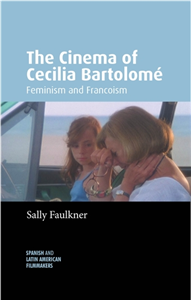Description
More Information
Rights Information
Albania, Algeria, Angola, Argentina, Armenia, Australia, Austria, Bahrain, Belgium, Belize, Benin, Bolivia, Bosnia and Herzegovina, Botswana, Brazil, Bulgaria, Burkina Faso, Burundi, Cameroon, Canada, Cape Verde, Central African Republic, Chad, Chile, China, Colombia, Comoros, Congo [DRC], Congo, Republic of the, Costa Rica, Ivory Coast, Croatia, Czech Republic, Denmark, Djibouti, Ecuador, Egypt, El Salvador, Equatorial Guinea, Eritrea, Estonia, Ethiopia, Faroe Islands, Finland, France, French Guiana, Gabon, Gambia, Georgia, Germany, Ghana, Greece, Guatemala, Guinea, Guinea-Bissau, Guyana, Honduras, Hongkong, Hungary, Iceland, India, Indonesia, Iran, Iraq, Ireland, Israel, Italy, Japan, Jordan, Kazakhstan, Kenya, Kuwait, Latvia, Lebanon, Lesotho, Liberia, Libya, Lithuania, Luxembourg, Macau, China, Macedonia [FYROM], Madagascar, Malawi, Malaysia, Mali, Malta, Mauritania, Mauritius, Mayotte, Mexico, Mongolia, Montenegro, Morocco, Mozambique, Namibia, Netherlands, New Zealand, Nicaragua, Niger, Nigeria, Norway, Oman, Pakistan, Panama, Paraguay, Peru, Philippines, Poland, Portugal, Puerto Rico, Qatar, Reunion, Romania, Russia, Rwanda, Saint Helena, Sao Tome and Principe, Saudi Arabia, Senegal, Serbia, Seychelles, Sierra Leone, Singapore, Slovakia, Slovenia, Somalia, South Africa, South Korea, Spain, Sri Lanka, Sudan, Suriname, Swaziland, Sweden, Switzerland, Syria, Taiwan, Tanzania, Thailand, Timor-Leste, Togo, Tokelau, Tunisia, Turkey, Uganda, Ukraine, United Arab Emirates, United Kingdom, United States, Uruguay, Venezuela, Vietnam, Western Sahara, Yemen, Zambia, Zimbabwe, South Sudan, Cyprus, Palestine, Bangladesh, Cambodia, Liechtenstein, Azerbaijan, Jamaica, Kyrgyzstan, Dominican Republic, Myanmar, Monaco
Endorsements
Fusing a distinctive feminist aesthetics with a startling vision of twentieth-century Spain, the work of Cecilia Bartolomé casts a new light on the histories of both Spanish national film, and transnational women's cinema. This book, the first in English on the director, and only the second in any language, analyses her shorts, medium- and feature-length films, television work - as well as her un-filmed scripts - in order that she may take her place among other key auteurs of Spanish and feminist cinema. Deploying extensive archive work, including Film School documentation and press reviews, The Cinema of Cecilia Bartolomé adopts an auteurist approach, but nuances it to include speculative approaches to censored and un-filmed work, thereby fashioning a new way of writing a feminist creative life in film. The volume also includes a new interview with the director, the first to be published in English. The 'feminism' of the subtitle indicates that each text is placed in dialogue with intersectional feminism, including Girlhood Studies (my approach to ¡Vámonos, Bárbara!), political activism (my focus on the diptych documentaries) and race (the framework in which I place Lejos de África). 'Francoism', highlights not only Bartolomé's opposition to dictatorship, but the fact that each text must be placed within the contexts of socio-political developments in Spain. While the number of Bartolomé's texts may be reduced, their range of medium, genre, theme and tone is wide, stretching from scripts, shorts, medium- and feature-length films, to television; from genres musical, comedy, and melodrama to documentary.
Reviews
Fusing a distinctive feminist aesthetics with a startling vision of twentieth-century Spain, the work of Cecilia Bartolomé casts a new light on the histories of both Spanish national film, and transnational women's cinema. This book, the first in English on the director, and only the second in any language, analyses her shorts, medium- and feature-length films, television work - as well as her un-filmed scripts - in order that she may take her place among other key auteurs of Spanish and feminist cinema. Deploying extensive archive work, including Film School documentation and press reviews, The Cinema of Cecilia Bartolomé adopts an auteurist approach, but nuances it to include speculative approaches to censored and un-filmed work, thereby fashioning a new way of writing a feminist creative life in film. The volume also includes a new interview with the director, the first to be published in English. The 'feminism' of the subtitle indicates that each text is placed in dialogue with intersectional feminism, including Girlhood Studies (my approach to ¡Vámonos, Bárbara!), political activism (my focus on the diptych documentaries) and race (the framework in which I place Lejos de África). 'Francoism', highlights not only Bartolomé's opposition to dictatorship, but the fact that each text must be placed within the contexts of socio-political developments in Spain. While the number of Bartolomé's texts may be reduced, their range of medium, genre, theme and tone is wide, stretching from scripts, shorts, medium- and feature-length films, to television; from genres musical, comedy, and melodrama to documentary.
Author Biography
Sally Faulkner is Professor of Hispanic Studies and Film at the University of Exeter
Manchester University Press
Manchester University Press is a leading UK publisher known for excellent research in the humanities and social sciences.
View all titlesBibliographic Information
- Publisher Manchester University Press
- Publication Date September 2024
- Orginal LanguageEnglish
- ISBN/Identifier 9781526169716 / 1526169711
- Publication Country or regionUnited Kingdom
- FormatPrint PDF
- Pages232
- ReadershipGeneral/trade
- Publish StatusPublished
- Dimensions216 X 138 mm
- Biblio NotesDerived from Proprietary 5832
- SeriesSpanish and Latin-American Filmmakers
- Reference Code15351
Manchester University Press has chosen to review this offer before it proceeds.
You will receive an email update that will bring you back to complete the process.
You can also check the status in the My Offers area

Please wait while the payment is being prepared.
Do not close this window.



